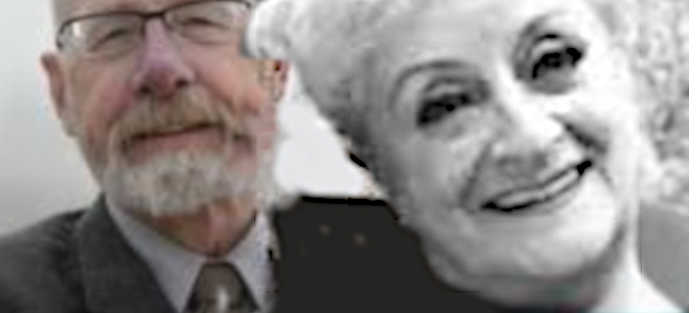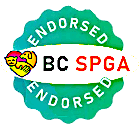In many workplaces, building strong, professional relationships with colleagues including supervisors is a significant asset.
However, when personal connections intertwine with professional expectations particularly in policing operations there is an inherent danger to the public who also fund policing operations as with BC SPCA animal policing.
One recent instance highlights this delicate balance. A former employee of the BC SPCA, Special Provincial Constable John Meneray enjoyed a seemingly idyllic working relationship with both BC SPCA Mr. Eccles (Senior Director) and his wife, BC SPCA Eileen Drever (Senior Officer) who has served as senior animal protection officer since 2003 overseeing a team of special provincial constables in the Lower Mainland. The husband-wife team work together in the BC SPCA Animal enforcement section of the BC SPCA.
Mr. Meneray's connection with Mr. Eccles was described as both professional and personal while he was in the BC SPCA employ, while his initial supervisor upon hiring was Ms. Drever, who, importantly, is married to Mr. Eccles.
Mr. Meneray's duties consisted of enforcing animal cruelty laws by, among other things, conducting investigations into complaints of animal cruelty, abuse or distress; conducting inspections of establishments where animals are kept; responding to calls relating to animal handling or rescue; taking custody of stray animals; making applications for executive search warrants; and gathering evidence and supporting Crown counsel with prosecuting violations of animal cruelty laws.
BC SPCA Special Provincial Constables have powers and authority well beyond those of ordinary citizens. For example, in certain circumstances they may enter private residences, with or without a warrant. They also may seize animals in some situations.
Mr. Meneray stated in a recent Supreme court case BC Society for the Prevention of Cruelty to Animals v Canadian Union of Public Employees, Local 1622, 2025 5358 that Ms. Drever and Mr. Eccles had such faith in his capabilities and work ethic that they entrusted him with representing the Society at community events which is not a duty of a Special Provincial Constable under the Prevention Of Cruelty To Animals Act.Further illustrating the strength of their bond, Mr. Meneray was also granted access to a privately owned cabin located away from Vancouver. He was given keys and permission to stay there independently, as well as when other individuals were present.
This level of access to personal property goes beyond the typical professional dynamic, indicating a deeper level of trust and friendship and may pose a conflict of interest in carrying out their respective animal policing duties.
This situation raises several important considerations about the blurring of lines between professional and personal relationships in the animal policing workplace.
Special Provincial Constables, a designation that Ms. Drever also holds although she had no prior policing employment background prior to working as an employee for the BC SPCA and her husband Sean Eccles and Mr. Meneray were conducting their duties under the British Columbia Police Act and the Prevention Of Cruelty To Animals Act. Further, it is unlikely that the RCMP Chief of Police would engage in a relationship as personal as providing keys to a privately owned cabin to an employee under his or her supervision.
"Personal perks that are given to an animal enforcement officer under Eileen Drever's supervision negatively impacts the professional relationship and independent nature of the work environment that the public has come to expect of investigative animal policing." a spokesperson for the BC SPGA said.
More potential pitfalls to consider when personal and professional lines become blurred in animal policing include:
- Potential for favoritism and perceptions of unfair treatment: Other employees may perceive preferential treatment based on personal connections.
- Difficulty maintaining objectivity in performance evaluations or disciplinary actions.
- Personal feelings could cloud professional judgment.
- Increased risk of conflict of interest: Personal relationships can create conflicts when making decisions that impact the organization or the animal pet owner public with their pets.
- Complicated dynamics if the personal relationship sours: A breakdown in the personal relationship could negatively impact the professional relationship and work environment.
Clear boundaries and transparent communication are crucial in the eye of the public in matters of policing.
The BC SPCA is not subject to freedom of information requests, have no third party access into its inner workings in policing and complaints about BC SPCA animal policing are dealt with internally.
The lack of accountability and transparency in BC SPCA personal policing relationships also has negative implications for the interests of the animals and their guardians, as the Prevention Of Cruelty To Animals Act lacks a mechanism to ensure impartiality and professional boundaries under the law.
British Columbians pay for animal policing in the Province. The BC SPCA has a surplus of over $100 million making the organization the richest animal society in the province and possibly the country.
According to the BC SPCA they spend $3.6 Million each year to respond to approximately 8000 complaints of animals in distress. Costs of investigations can vary, but on average it costs about $10,000 to bring a case to Crown for prosecution which the public also pays for. Since the BC SPCA is successful in preventing the return of pets to their guardians in approximately 95% of the appeals the BC SPCA also get their costs awarded which are ultimately a profit for the Society.
With costs less than $4 million each year for animal policing the provincial government could easily assume animal policing which would bring transparency for the public and accountability. In Ontario the SPCA was relieved of animal policing which freed up the charity to pursue its charitable endeavours.
"The public pays for BC animal policing anyway so why not have an impartial and transparent government run system in place?" a BC SPGA spokesperson said. "The BC SPCA is not subject to freedom of information requests, they recently called the review of some pets they kill "moot" in the Supreme Court (and won that case), the boundaries between BC SPCA personal and professional staff and supervisor policing relationships is blurred, and now we find out with the BC SPCA Chief of the department and vet scandal what could be one other reason why the pet public who want their pets back very rarely succeed in the justice system."


 Donate Today
Donate Today



